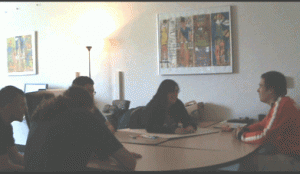The threats against Ms. Sarkeesian are the most noxious example of a weekslong campaign to discredit or intimidate outspoken critics of the male-dominated gaming industry and its culture. The instigators of the campaign are allied with a broader movement that has rallied around the Twitter hashtag #GamerGate, a term adopted by those who see ethical problems among game journalists and political correctness in their coverage. The more extreme threats, though, seem to be the work of a much smaller faction and aimed at women. Major game companies have so far mostly tried to steer clear of the vitriol, leading to calls for them to intervene.
While the online attacks on women have intensified in the last few months, the dynamics behind the harassment go back much further. They arise from larger changes in the video game business that have redefined the audience for its products, expanding it well beyond the traditional young, male demographic. They also reflect the central role games play in the identity of many fans.
“That sense of being marginalized by the rest of society, and that sense of triumph when you’re recognized,” said Raph Koster, a veteran game developer. “Gamers have had that for quite a while.”
Mr. Koster has experienced the fury that has long lurked in parts of the game community. In the late 1990s, when he was the lead designer for Ultima Online, a pioneering multiplayer web-based game, he received anonymous hate messages for making seemingly small changes in the game.
After an electrical fire at his house, someone posted a note on Mr. Koster’s personal website saying he wished the game designer had died in the blaze.
The malice directed recently at women, though, is more intense, invigorated by the anonymity of social media and bulletin boards where groups go to cheer each other on and hatch plans for action. The atmosphere has become so toxic, say female game critics and developers, that they are calling on big companies in the $70-billion-a-year video game business to break their silence.
“Game studios, developers and major publishers need to vocally speak up against the harassment of women and say this behavior is unacceptable,” Ms. Sarkeesian said in an interview.


 Follow
Follow



